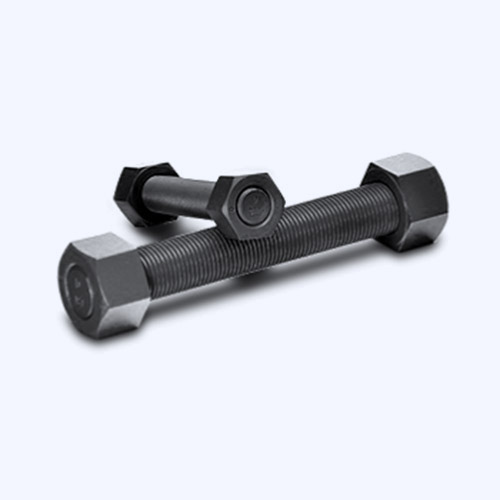Pro . 25, 2024 11:49 Back to list
Exploring the Features and Benefits of Hexagonal Head Fasteners in Construction and Engineering
The Versatility and Applications of Hexagonal Head Fasteners
Hexagonal head fasteners, often recognized for their distinctive six-sided shape, play a crucial role in a multitude of applications spanning various industries. These fasteners, which include bolts and screws, are widely utilized for securing components in machines, structures, and various products. The design of the hexagonal head allows for the effective transfer of torque, making them a preferred choice in both professional and DIY projects.
Design and Functionality
The hexagonal head design is not merely aesthetic; it offers practical benefits that make it superior to other shapes, such as round or square heads. The six flat surfaces of a hexagon provide a larger area for gripping with tools such as wrenches or sockets. This larger gripping area allows for the application of higher torque, which is essential when fastening objects under considerable tension or stress. Additionally, the uniform shape reduces the risk of stripping the fastener head when using tools, thus ensuring a secure and reliable connection.
The hexagonal head fasteners are typically made from durable materials like steel, stainless steel, or alloy, enhancing their strength and resistance to corrosion. This durability is crucial in sectors such as construction, automotive, and aerospace, where the integrity of joints must withstand harsh conditions and significant loads.
Applications Across Industries
1. Construction In the construction industry, hexagonal head bolts are ubiquitous. They are used to secure beams, columns, and other structural components. Their ability to accommodate high tensile loads makes them ideal for heavy-duty applications. Furthermore, the hexagonal shape allows for easy installation and removal, which is essential on job sites that require frequent adjustments.
2. Automotive The automotive industry relies heavily on hexagonal head fasteners for assembling vehicles. They are found in engine components, chassis assemblies, and suspension systems. In this context, the ability to withstand vibrations and thermal expansion makes hexagonal bolts indispensable for maintaining vehicle safety and performance.
hexagonal head

3. Aerospace In the aerospace sector, where precision and weight are critical, hexagonal fasteners are used extensively. These fasteners must meet rigorous standards for strength and reliability due to the extreme conditions faced in flight. The lightweight characteristics of materials used in hexagonal fasteners enable aircraft designers to maintain fuel efficiency while ensuring safety through robust connections.
4. Manufacturing In manufacturing settings, hexagonal head screws are utilized in machinery assembly and product fabrication. Their ease of use and reliability improve efficiency on production lines, where quick assembly and disassembly are often required.
5. DIY Projects Beyond industrial applications, hexagonal head fasteners are popular among DIY enthusiasts. Their availability in various sizes and materials makes them suitable for countless home improvement projects, from furniture assembly to automotive repairs. The familiar design and straightforward installation process make them an accessible choice for hobbyists and professionals alike.
Advantages of Hexagonal Head Fasteners
The benefits of hexagonal head fasteners extend beyond their structural reliability. Their compatibility with various tools enhances accessibility, allowing users to employ standard socket wrenches and ratchets. Additionally, their ability to resist loosening over time due to vibrations or external forces helps ensure long-lasting stability in assembled products.
Moreover, hexagonal head fasteners are available in various finishes and grades, offering options that cater to specific environmental conditions. For instance, galvanized or coated versions can provide additional corrosion resistance, while high-strength versions can handle more demanding applications.
Conclusion
In summary, hexagonal head fasteners are a vital component across various industries, praised for their design, functionality, and versatility. From construction and automotive applications to manufacturing and DIY projects, their ability to securely fasten components under high stress makes them an integral part of modern engineering. As technology continues to advance and industries evolve, the importance of hexagonal head fasteners will undoubtedly remain significant, ensuring the integrity and longevity of countless structures and systems.


